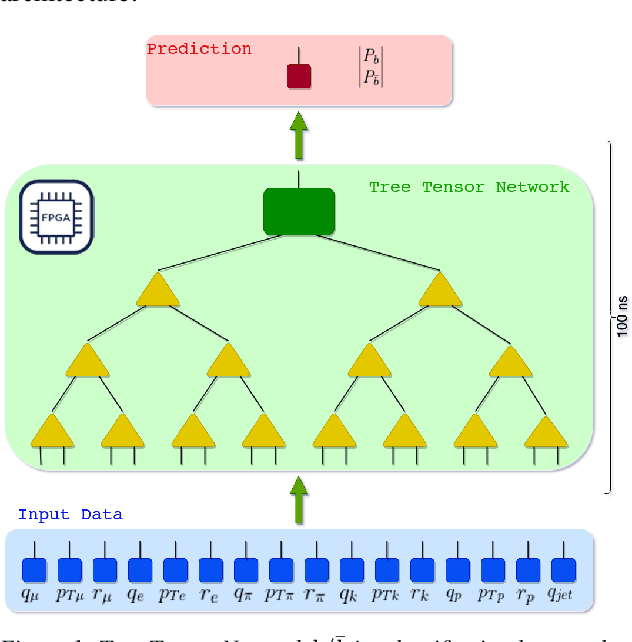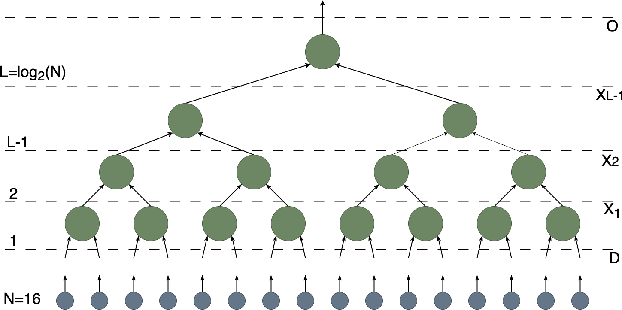Marco Trenti
Ultra-low latency quantum-inspired machine learning predictors implemented on FPGA
Sep 25, 2024



Abstract:Tensor Networks (TNs) are a computational paradigm used for representing quantum many-body systems. Recent works have shown how TNs can also be applied to perform Machine Learning (ML) tasks, yielding comparable results to standard supervised learning techniques. In this work, we study the use of Tree Tensor Networks (TTNs) in high-frequency real-time applications by exploiting the low-latency hardware of the Field-Programmable Gate Array (FPGA) technology. We present different implementations of TTN classifiers, capable of performing inference on classical ML datasets as well as on complex physics data. A preparatory analysis of bond dimensions and weight quantization is realized in the training phase, together with entanglement entropy and correlation measurements, that help setting the choice of the TTN architecture. The generated TTNs are then deployed on a hardware accelerator; using an FPGA integrated into a server, the inference of the TTN is completely offloaded. Eventually, a classifier for High Energy Physics (HEP) applications is implemented and executed fully pipelined with sub-microsecond latency.
Quantum-inspired Machine Learning on high-energy physics data
Apr 28, 2020



Abstract:One of the most challenging big data problems in high energy physics is the analysis and classification of the data produced by the Large Hadron Collider at CERN. Recently, machine learning techniques have been employed to tackle such challenges, which, despite being very effective, rely on classification schemes that are hard to interpret. Here, we introduce and apply a quantum-inspired machine learning technique and, exploiting tree tensor networks, we show how to efficiently classify b-jet events in proton-proton collisions at LHCb and to interpret the classification results. In particular, we show how to select important features and adapt the network geometry based on information acquired in the learning process. Moreover, the tree tensor network can be adapted for optimal precision or fast response in time without the need for repeating the learning process. This paves the way to high-frequency real-time applications as needed for current and future LHC event classification to trigger events at the tens of MHz scale.
 Add to Chrome
Add to Chrome Add to Firefox
Add to Firefox Add to Edge
Add to Edge